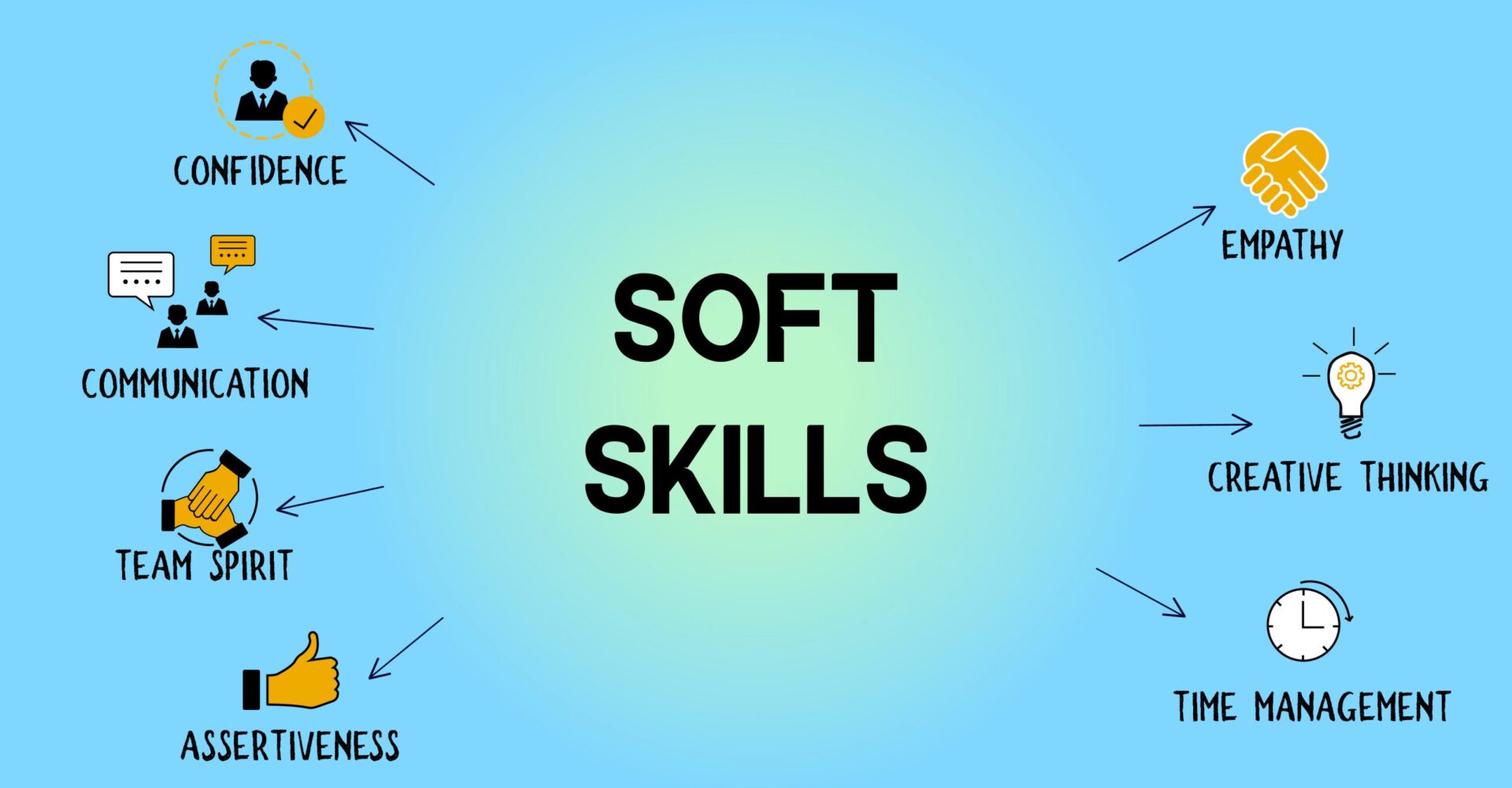In the world of work and professional development, it’s not uncommon to hear about the importance of “soft skills.” So what are they? Why should organizations prioritize soft skills training for their employees? In this article, we’ll explore what soft skills are, why they matter, and how you can help your employees develop them.
What are Soft Skills?
Soft skills are the personal attributes that enable individuals to interact effectively and harmoniously with others in the workplace. Unlike hard skills, which are specific to a particular job or industry, soft skills are transferable across different jobs and industries. They include things like communication, teamwork, problem-solving, time management, adaptability, and emotional intelligence.
Hard skills on the other hand are specific abilities, capabilities and skill sets that an individual can possess and demonstrate in a measured way. Hard skills are learnable skills that enable individuals to perform job-specific tasks, or that may be required for a specific job. They include programming skills, digital marketing skills and data science skills.
While hard skills are important for getting a job done, it’s often the soft skills that determine how well someone can work with others, lead a team, or communicate effectively. This is especially important in the workplace environment which promotes teamwork and cooperation amongst staff. For example, a software engineer might have excellent programming skills, but if they can’t communicate with their team or collaborate effectively, their work may suffer.
Importance of Soft Skills in the Workplace
Soft skills are crucial in the modern workplace for several reasons. Firstly, they help to build stronger and more effective relationships between team members. Strong interpersonal skills allow individuals to communicate effectively, resolve conflicts, and work collaboratively to achieve common goals.
Secondly, soft skills are essential for effective leadership. Leaders who possess strong communication, emotional intelligence, and conflict resolution skills are better able to motivate and engage their teams, and create a positive and productive work environment. These leaders become relatable and organizational communication and management becomes easier and more fun.
Finally, soft skills are increasingly in demand among employers. A survey by the National Association of Colleges and Employers found that over 90% of employers value soft skills as much or more than hard skills, and that the most in-demand soft skills are communication, teamwork, problem-solving, and leadership. Therefore, highly talented employees are usually the ones with these skills since they are an organizational, personality and culture fit
How to Equip Your Staff with Soft Skills
Equipping your staff with soft skills requires a multi-faceted approach. Here are some ideas for how you can help your employees develop their soft skills:
1. Conducting Soft Skills Training.
One of the most straightforward ways to help your employees develop their soft skills is to offer training programs. These can include workshops, online courses, and coaching sessions that focus on communication, teamwork, leadership, and other critical soft skills.
2. Encouraging Feedback and Communication.
Encourage a culture of open and honest feedback within your organization. This can help employees develop their communication skills and improve their ability to give and receive constructive criticism.
3. Promoting Collaboration and Teamwork.
Create opportunities for collaboration and teamwork within your organization. This can include cross-functional projects, team-building activities, and group problem-solving exercises.
4. Fostering a Positive Work Environment.
A positive work environment is essential for developing soft skills such as emotional intelligence and conflict resolution. Make sure to promote a culture of respect, empathy, and positivity within your organization.
5. Leading by Example.
As a leader, your behavior sets the tone for the rest of your team. Model the soft skills that you want to see in your employees, such as active listening, clear communication, and empathy.
Read Also: How to Bridge the Digital Skills Gap
Key Take-Away
In conclusion, soft skills are critical to success in the modern workplace, and it’s essential to invest in developing them within your organization. The importance of soft skills are immense. By offering training programs, promoting collaboration and teamwork, fostering a positive work environment, and leading by example, you can help your employees develop the essential soft skills they need to thrive in their roles and contribute to your organization’s success.
Register for Soft Skills training from Indepth Research Institute (IRES) and be the best version of yourself!
We have a firm belief that every organization has a unique purpose only they can fulfil in this world. We work with you in organizing your resources to exploit opportunities so that you can fulfil your purpose and realize full potential. We build the capacity of people, processes and systems for organizational success and growth as well as nurturing a thriving ecosystem.
Ready to enhance your skills and boost your career? Explore our corporate training programs now and start your journey to success.








Comment here